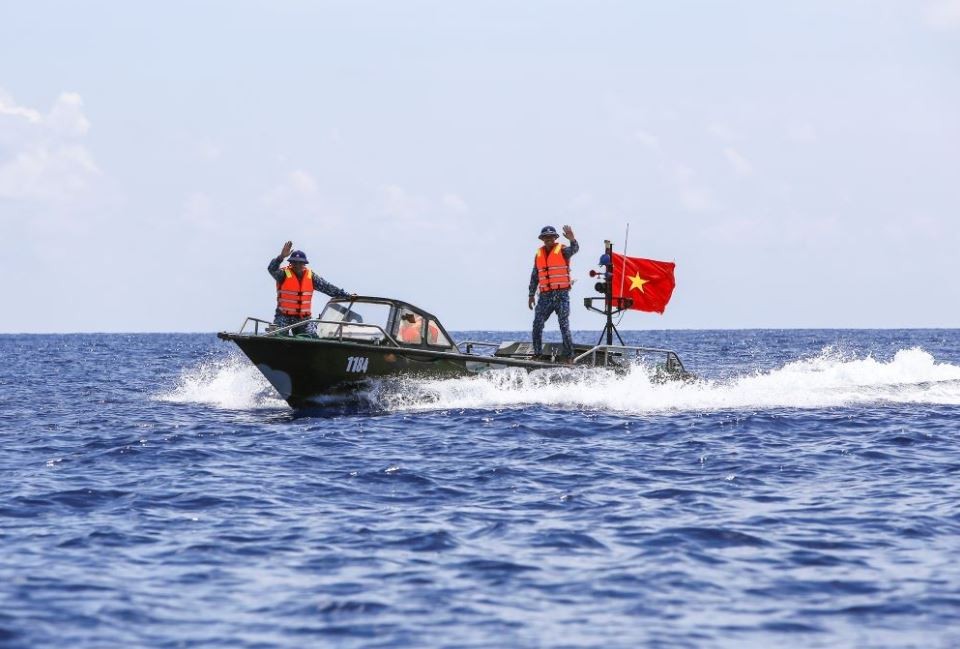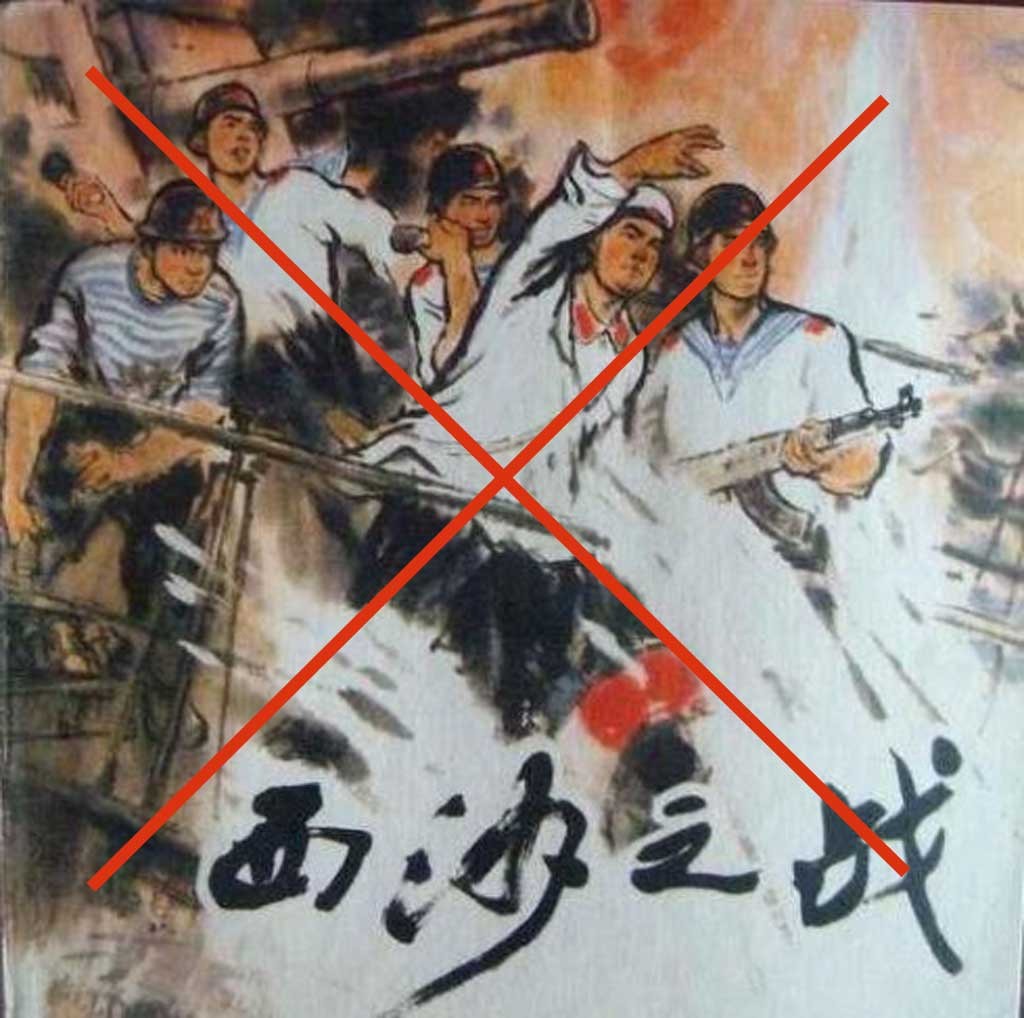The Truth About The South China Sea: A Voice From Vietnam (Part III)
Difficulties in "diplomatic and legal processes" or the issue of "do-not-dispute sovereignty"
The best solution that should always be given priority is direct negotiation between the disputants. It is by this way that Vietnam and China have solved satisfactorily the problem of land border delimitation and issues concerning the Bắc Bộ (Tonkin) Gulf.
But negotiations related to the South China Sea have been much more difficult.
While there is real need to address the issue of Hoàng Sa (Paracel) Archipelago, which belonged to Vietnam and seized by China using armed force in 1956 and 1974, China has been always rejecting any mention of this matter, asserting that “there is no dispute exists”. In practical term, the failure to clarify the Hoàng Sa issue obstructs a possibility to clearly delimitate the sea areas off the mouth of the Bắc Bộ (Tonkin) Gulf and leads also to many other serious consequences. For instance, with its claim that Hoàng Sa belongs to China and has a 200-nautical-mile exclusive economic zone, China hasattacked Vietnamese fishing vessels, preventing Vietnam from lawful activities right in its exclusive economic zone, and sent survey ships and drilling rigs for exploration in waters under Vietnam’s sovereign rights and jurisdiction.
While refusing any discussion on such a practical issue, China has been constantly pressurizing othercountries into negotiations for "joint exploitation" with China, and China alone, in their exclusive economic zones and continental shelves, which China considers as under "disputes” with areas covered by its “nine-dash line” or " Four Sha". For example: China has been constantly trying to obstruct Vietnamese surveys at Tư Chính (Vanguard) Bank in Vietnam’s continental shelf on the grounds that it lays within a 200-nautical-mile range from rocks described by China as belonging to the Trường Sa (Spratly) Archipelago (despite a PCA ruling that all features in Trường Sa do not generate an exclusive economic zone, and despite China’s recognition that there remained “disputes” in Trường Sa, i.e. Trường Sa did not fully belong to China). A similar state of things has occurred between China on the one hand and the Philippnes, Malaysia, Indonesia and Brunei on the other. Please note that the real meaning of Chinese “joint exploitation” concept requires that China would participate not simply as a foreign partner-investor like any other country, but as the one having “sovereignty” over the sea area concerned. To accept such negotiations would mean acquiescence of this China's absurd claims. That was the main reason for Indonesia’s rejection of China's proposal for negotiations on water areas near Indonesia's Natuna islands in this July.
Following the US announcement of its "pivot" to Asia, and at the urging of ASEAN countries, China finally agreed to hold negotiations with ASEAN on a Code of Conduct in the South China Sea (COC),and has been using this to show that the South China Sea situation is "developing positively", "under control", and being resolved between China and ASEAN, with no need for outside involvement. In reality, however, the COC negotiations have been facing with numerous difficulties, for China is unwilling to have a truely effective and legally binding code of conduct (which is essential, but still lacking, for ASEAN countries to help create favorable conditions for maintaining peace and stability in the South China Sea). Meanwhile, China keeps pressurizing ASEAN countries into accepting a stipulation that all cooperative activities for exploitation in the South China Sea should be conducted only with China or China’s consent, which would means at the same time an official recognition of China’s sovereignty over most of the South China Sea and an agreement with China to “close the door” of these international waters to all other countries.
In fact, China has turned the existing and real issue of Hoang Sa (Paracel) into an "undisputed” one and large parts of legal exclusive economic zones and continental shelfs of other littoral countries into "disputed" areas, and at the same time has been trying to compel other countries to negotiate on the basis of recognition in the first place of China’s "nine-dash line" and "Four Sha" claims. That is why many "bilateral negotiations" have been deadlocked or unable to come into real substance, and there is no sight that China might adjust its claims to conform to international law. Meanwhile, China is getting ever more drastic in unilateral use of force for on-site realization of its illegal claims.
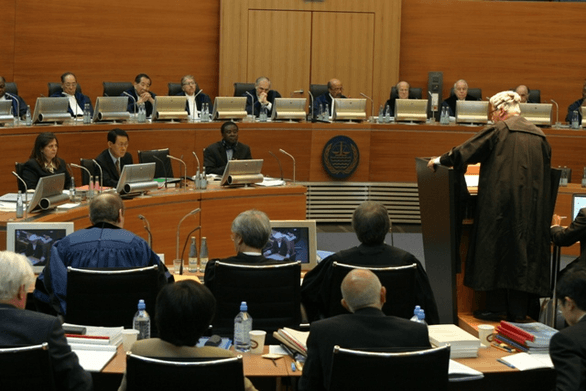 |
| International Tribunal for the Law of the Sea |
Legal solutions constitute a widely useful and effective tool for the peaceful settlement of territorial sovereignty disputes between countries, including those with friendly relations, and therefore should not always be seen as an act of confrontation or hostility. For example, Malaysia and Singapore, Australia and Timor Leste, Cambodia and Thailand, Qatar and Bahrain, India and Bangladesh, or Nicaragua and Colombia ... have found fruitful and mutually acceptable solutions to sovereignty disputes through international jurisdiction. As shown by history, if parties to a dispute cannot come to a solution through direct negotiations, due to impossibility to compromise on matters of principle or internal factors, recourse to international jurisdiction, such as a court or an arbitral tribunal, serves as a necessary, effective and appropriate solution. However, China has always been fiercely opposed to such a way of solution with regard to the South China Sea issue, despite its repeated assertion that China "has ample historical and legal grounds" for its "indisputable" sovereignty. China has rejected the Philippines' proposal for a joint settlement through an arbitral tribunal, and exercised non-participation in the lawsuit, non-recognition of the ruling by the Court of Arbitration, and non-implementation of its decisions, although, as stipulated by international law, decisions rendered by such a court “shall be final and shall be complied by all the parties”. At the same time, China then has conducted economic sanctions and political campaigns against the Philippines, pressurizing the latter into side-stepping the Court’s ruling, and mobilizing the international public to stand against it. China has also threatened to take "stronger" measures against other countries should they dare bring China to an international arbitral tribunal. Meanwhile, peaceful settlement of disputes, including through agencies of international jurisdiction recognized in international treaties, UNCLOS or stipulations on the PCA’s establishment…, constitutes one of the fundamental principles of international law contributing to the preservation of peace and stability in the world. China's defiance of international law, disregard of the PCA, and boycott of its ruling cannot help raising doubt and concern among many countries about China’s real motives at a time when China is busily campaigning for the appointment of an additional judge of its own to the International Tribunal for the Law of the Sea, another agency established in accordance with UNCLOS.
Although ASEAN has always advocated "respect for diplomatic and legal processes" in resolving the South China Sea issue, China's aforementioned stance constitutes a large obstacle blocking the way toward substantive negotiations or the use of legal instruments for the peaceful settlement of disputes in the South China Sea. And thus, what China has claimed as "indisputable" has in fact been turned by China itself into an "do-not-dispute" matter./.
By Tran Minh (VPDF)
To be continued
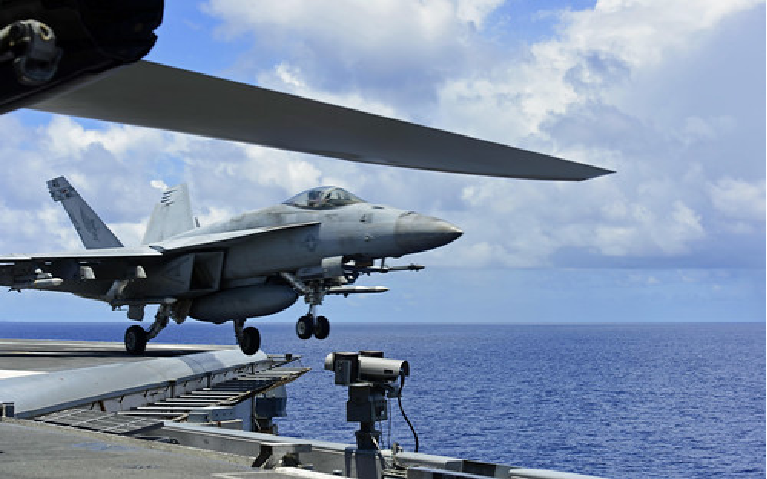 | US sends strike group to South China Sea (Bien Dong Sea) for flight drill The Ronald Reagan Carrier Strike Group entered the South China Sea (called Bien Dong Sea) on August 14, and conducted maritime air defense operations in ... |
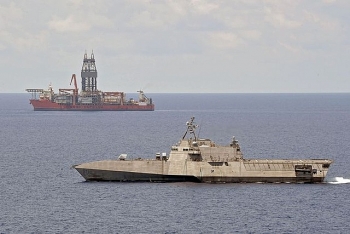 | Malaysia Opposes China's Claim In The South China Sea Malaysia has made an unusual move as to object China’s sovereignty claim in the Bien Dong Sea (South China Sea), despite the fact that China ... |
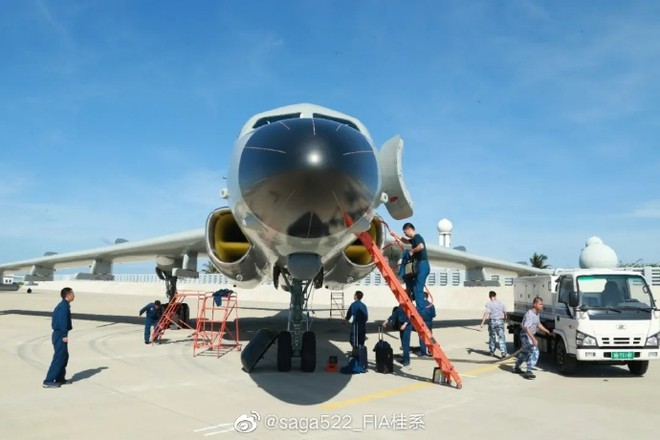 | Chinese bomber appeared illegally at Hoang Sa (Paracel) archipelago Some social media's images have recently appeared to show at least one Chinese H-6J missile-carrying bomber landing on Phu Lam Island in the Hoang Sa ... |
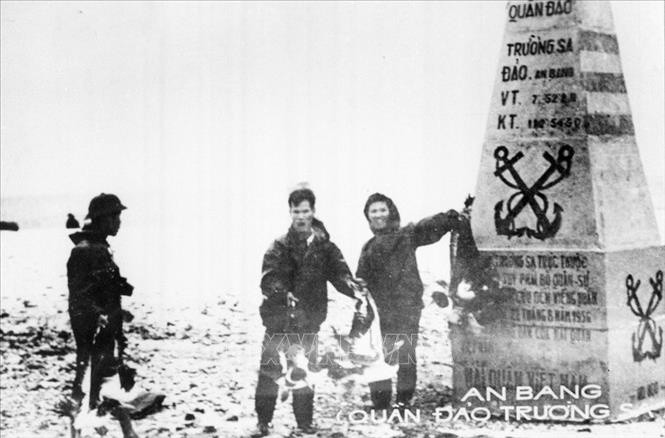 Focus
Focus
Truong Sa (Spratly) 1988 - Dossier on Historical Incident: Diplomacy and Reality
Recommended
 Seas and islands
Seas and islands
Coast Guard Region 2 Command Hosts Philippine Coast Counterpart
 Seas and islands
Seas and islands
Vietnam - Thailand Navy: Coordination to Well Address Problems at Sea
 Seas and islands
Seas and islands
Honoring the Fallen: Incense Offering for the 37th Anniversary of Gac Ma
 Seas and islands
Seas and islands
Vietnam Coast Guard Expands International Cooperation for Maritime Security
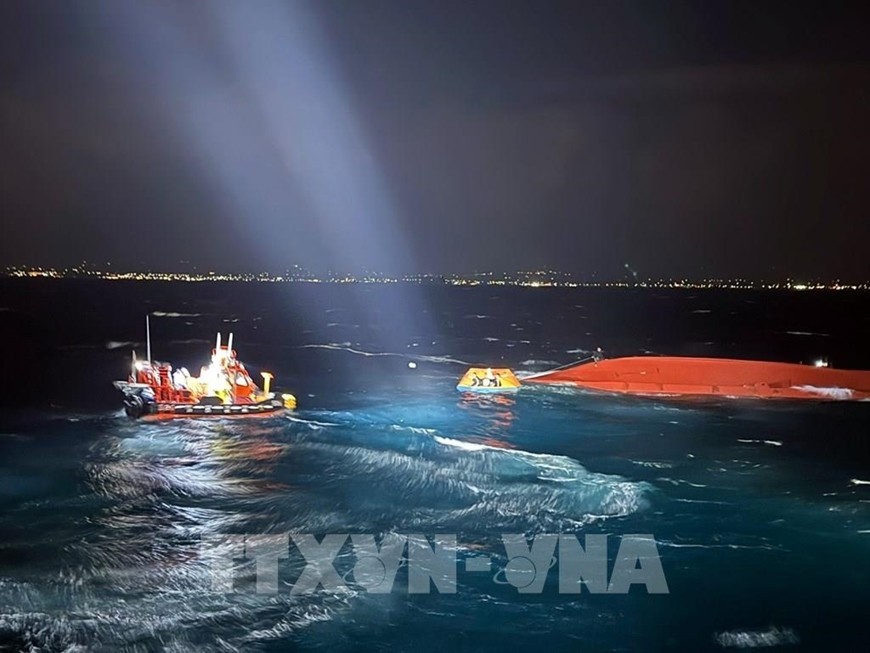 Seas and islands
Seas and islands
Three Vietnamese Fishermen Saved Off Jeju Coast
 Seas and islands
Seas and islands
Vietnamese Coast Guard Rescues Filipino Sailor In Distress
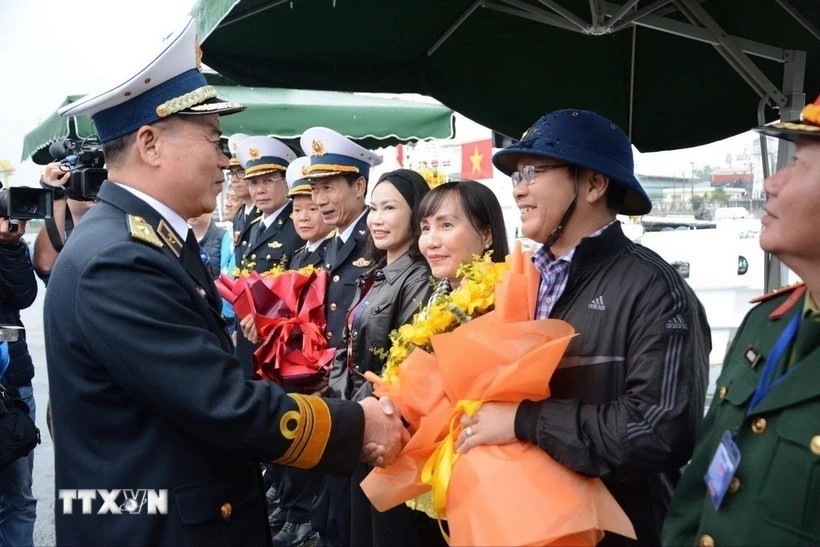 Seas and islands
Seas and islands
Naval Region 3 Brings Tet Atmosphere to Fatherland's Outpost Islands
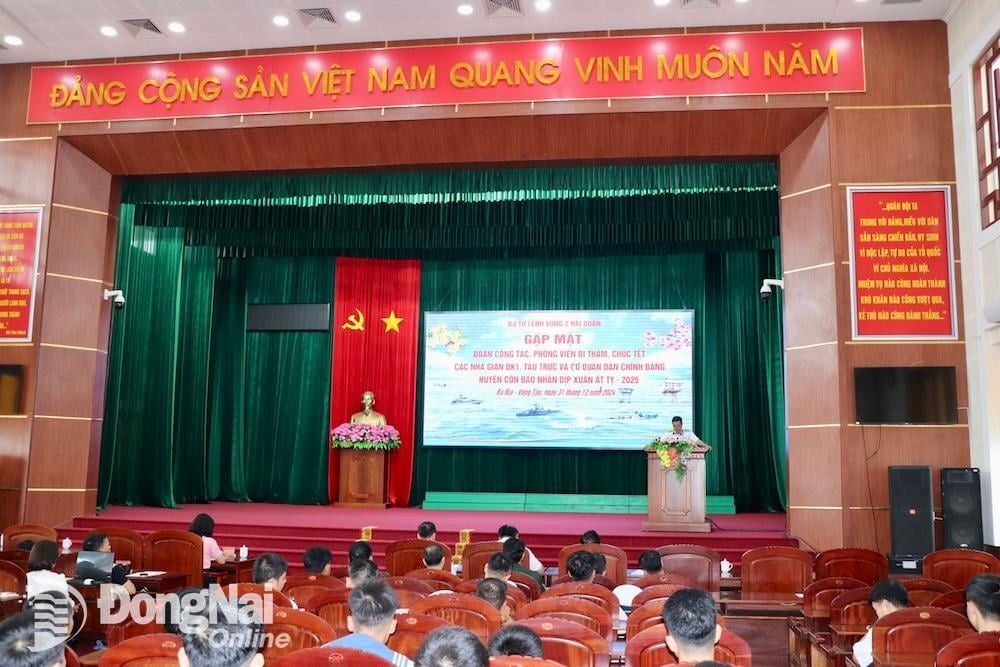 Seas and islands
Seas and islands

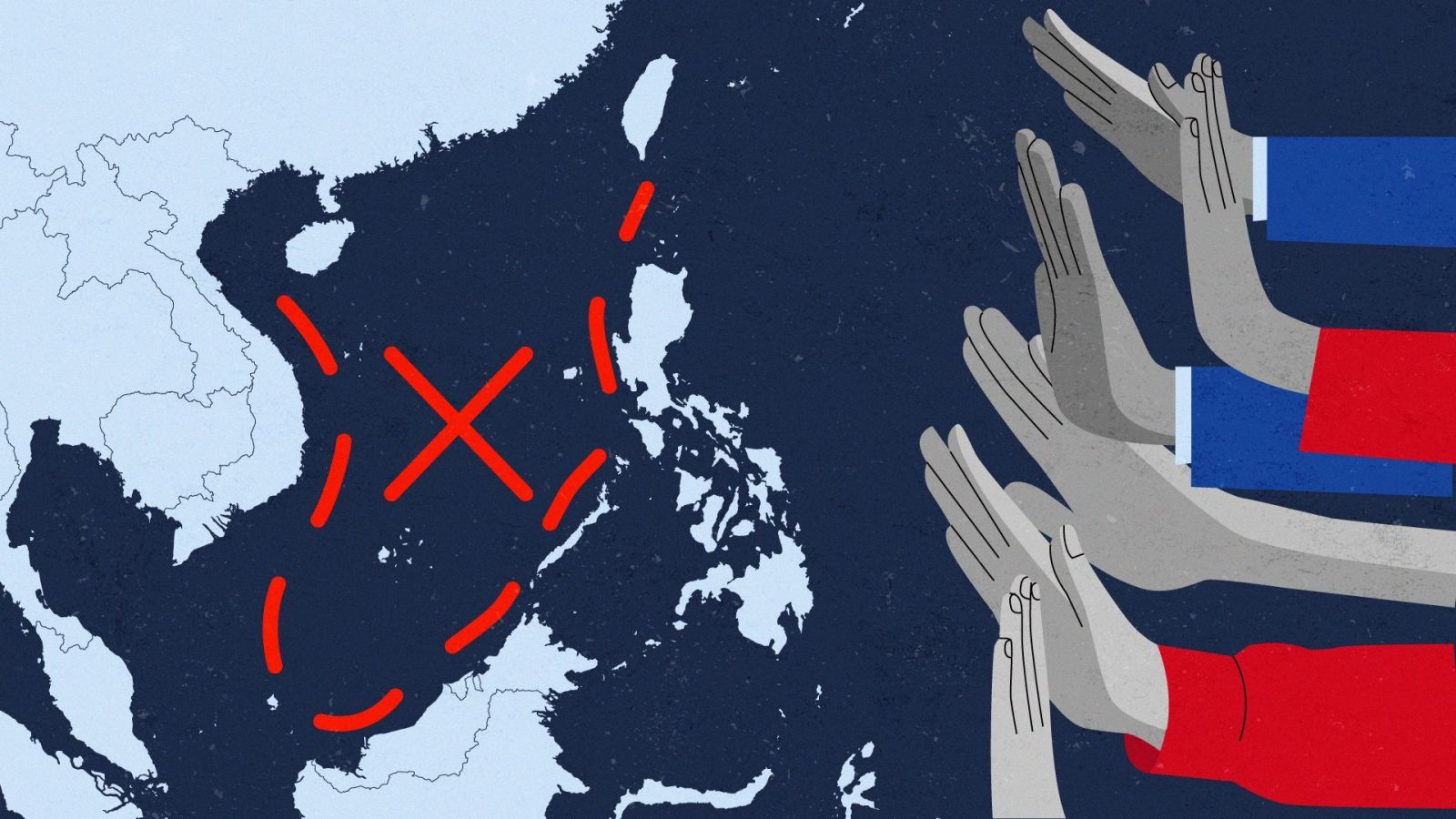
![The Truth About The South China Sea [*] : A Voice From Vietnam (Part I) the truth about the south china sea a voice from vietnam part i](https://vietnamtimes.org.vn/stores/news_dataimages/thuyhangvnt/082020/17/09/thumbnail/3630_bd.png?rt=20200824111844)


